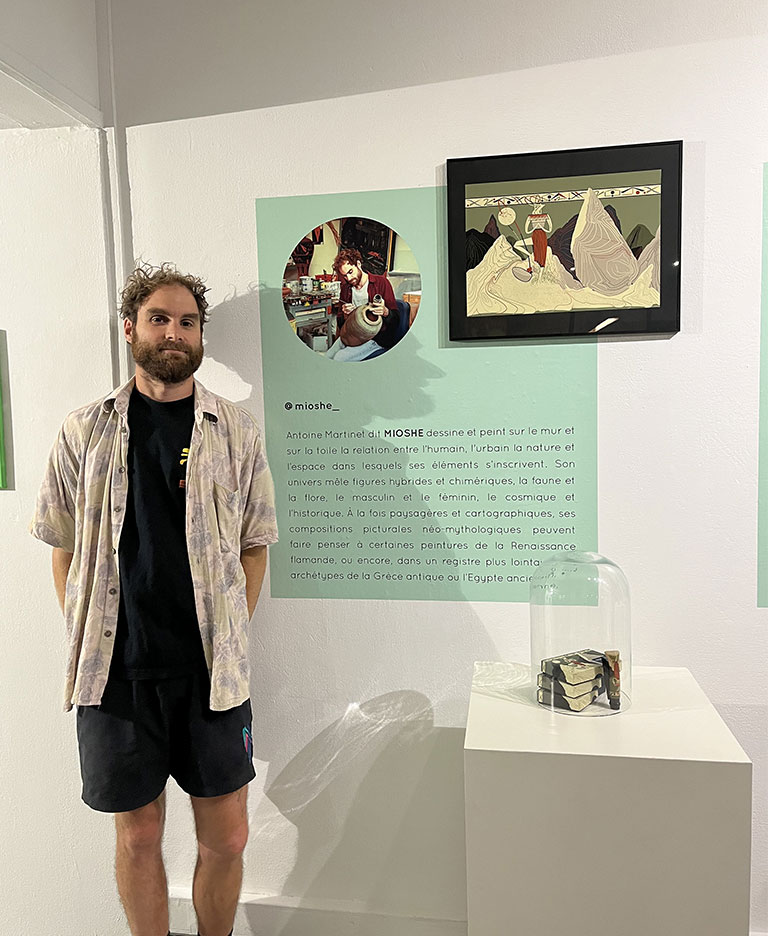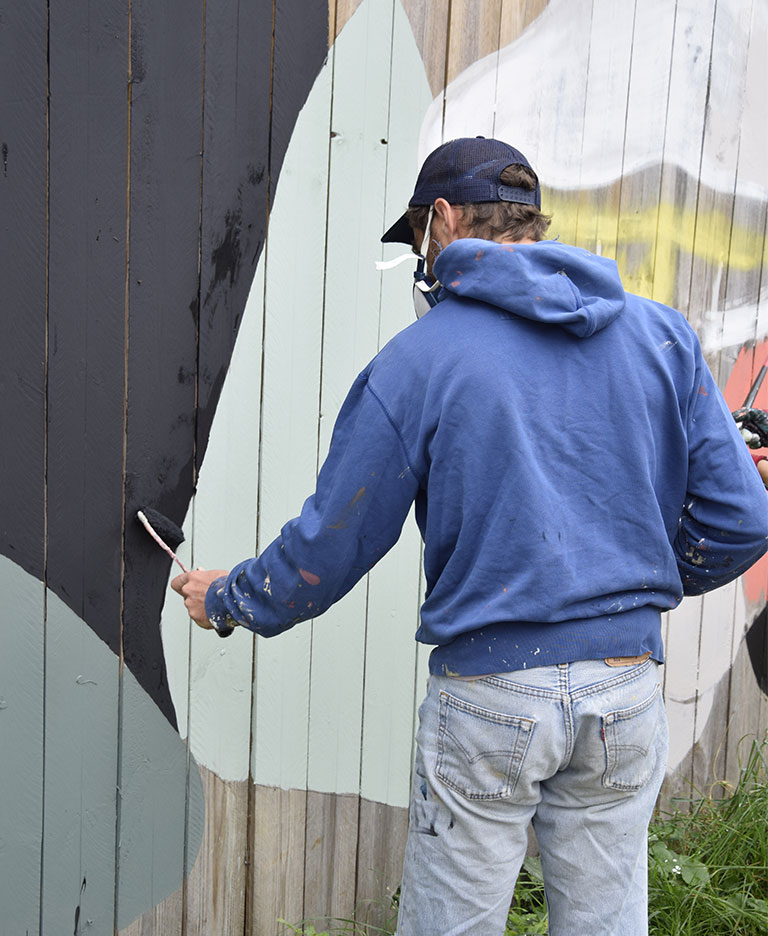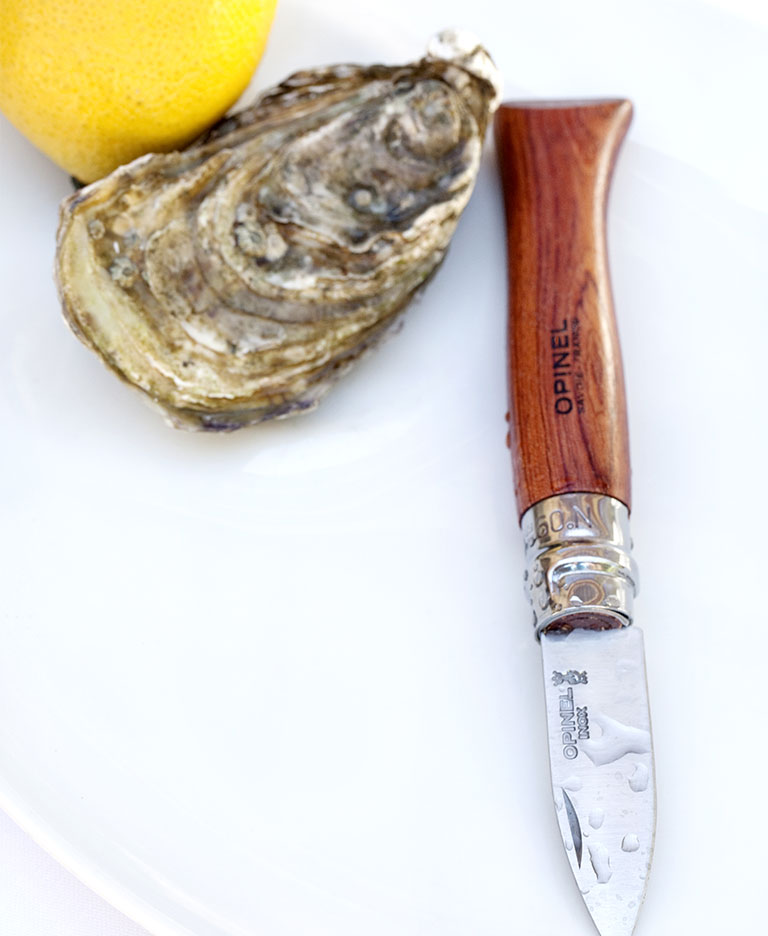Your cart is empty
Are you sure you want to perform this action?
Free delivery* for purchases over €69 (find out more).
Your cart is empty
Multifunction
Limited editions
By use
Barbecue Set
Three utensils made in France using environmentally friendly materials: the No. 12 B knife with a bottle opener, the Spatula +, which attaches to the handle of the knife, and XL Tongs.
Pocket knives
Pop 80 Les Essentiels Set
Colourful handles and four small blades that are kitchen essentials: the paring knife, serrated knife, vegetable knife and peeler.
Pocket knives
By product type
Facette Mixed Set
Knives that combine comfort, efficacy and aesthetics, with four different handles: ash, dark ash, olive and VittEr® eco-material.
By product type
Pocket knives
Le Petit Chef Green Set
A small chef's knife, a peeler and a finger guard: the essentials for passing on the love of cooking to children.
By product type
Scabbard
The made in France case to carry the No. 06, No. 07 and No. 08 pocket knives, as well as Effilé folding knives 8 and 10.
Need help

My name is Antoine Martinet, I'm from Brittany and I lived near the sea as a kid where I got into surfing, but I also grew up in an urban environment since I live in the city of Rennes.
I did 3 years at the Beaux-arts in Rennes. It was a valuable experience that helped me to find my own unique place in the visual arts landscape: I'm at the crossroads of the 'academic' world, the tradition of art history and painting, and a more 'urban' culture through my work in muralism.

I mainly paint murals in public spaces for various organisations such as festivals, projects with French institutes abroad, social housing landlords in France and a few contemporary arts centres.
I also work in a variety of media: in recent years I've developed a project called Vestigum Park where I paint on amphorae and have tapestries woven by a workshop in Aubusson.
I draw my inspiration mainly from art history: I'm as interested in ancient Greek ceramics as I am in medieval dyes or the Flemish Renaissance paintings of Jérôme Bosch.
Among my contemporary influences I'm very drawn to the work of choreographer Gisèle Vienne or the experimental manga scene at Edition Matière.
I've always said to myself that I wanted to make a living from drawing. But it took some perseverance before I was able to get into it and become a professional.
Art takes you on a journey in every sense of the word: inside, you're constantly moving, firstly in your work so you don't get stuck behind the times, and also outside through encounters.
Working in response to the specific context I'm working in is what I enjoy most about my profession: interacting with people, understanding the environment and trying to echo the surroundings in which the work is going to take shape.
Thanks to the Art By Friends gallery in Annecy, we've been working together since 2020, mostly on large-scale murals.

Art By Friends
"Vrikshasana" is a tribute to nature, and could even be the name of this knife. The full moon could also transform this yogic creature into Selene, goddess of the full moon or Demeter, divinity of mother earth and harvests. The strength of her posture transforms her into a fruit tree. Ancient mythology and a link with nature was clearly the driving force behind this creation.


It's hard to put a figure on how long it takes, as there are several weeks between the idea germinating and the design and colours being fully approved.
This is the first time I've worked directly with a brand.
I think the one that chimes with me most is the No. 10, the one with the corkscrew (wine, another of my passions!).

Family picnics on the beaches of Brittany, opening oysters (of course without damaging either the shell or the blade, not an easy task...).
Are you sure you want to perform this action?
Hello,
We think you are in North America.
Get the best experience and visit opinel-usa.com
Hello,
We think you are in Australia.
Get the best experience and visit opinel.com.au
Hello,
We think you are in Japan.
Get the best experience and visit opinel.jp
Hello,
We think you are in New Zealand.
Get the best experience and visit opinel.co.nz
Hello,
We think you are in Singapore.
Get the best experience and visit opinel.sg
Treat your loved ones or yourself to a unique and original personalised knife. You can engrave a first name, a date or any other message on one line of text, up to a limit of 20 characters.
The engraving service is offered from one unit, starting at €6.
If you would like to order more than a hundred units for a wedding, an association or business gifts: request a quote.
Differences in the colour of the engraving on the handle may appear depending on the grain of the wood. In accordance with Article L-121-20-2 No. 3 of the Consumer Code, engraved items can neither be returned nor exchanged. The guarantee on manufacturing defects remains the same.
Engraving examples








Need some help for your engraving ?
Contact us by phone (+33 4 58 25 01 16) or using the form on our contact page
